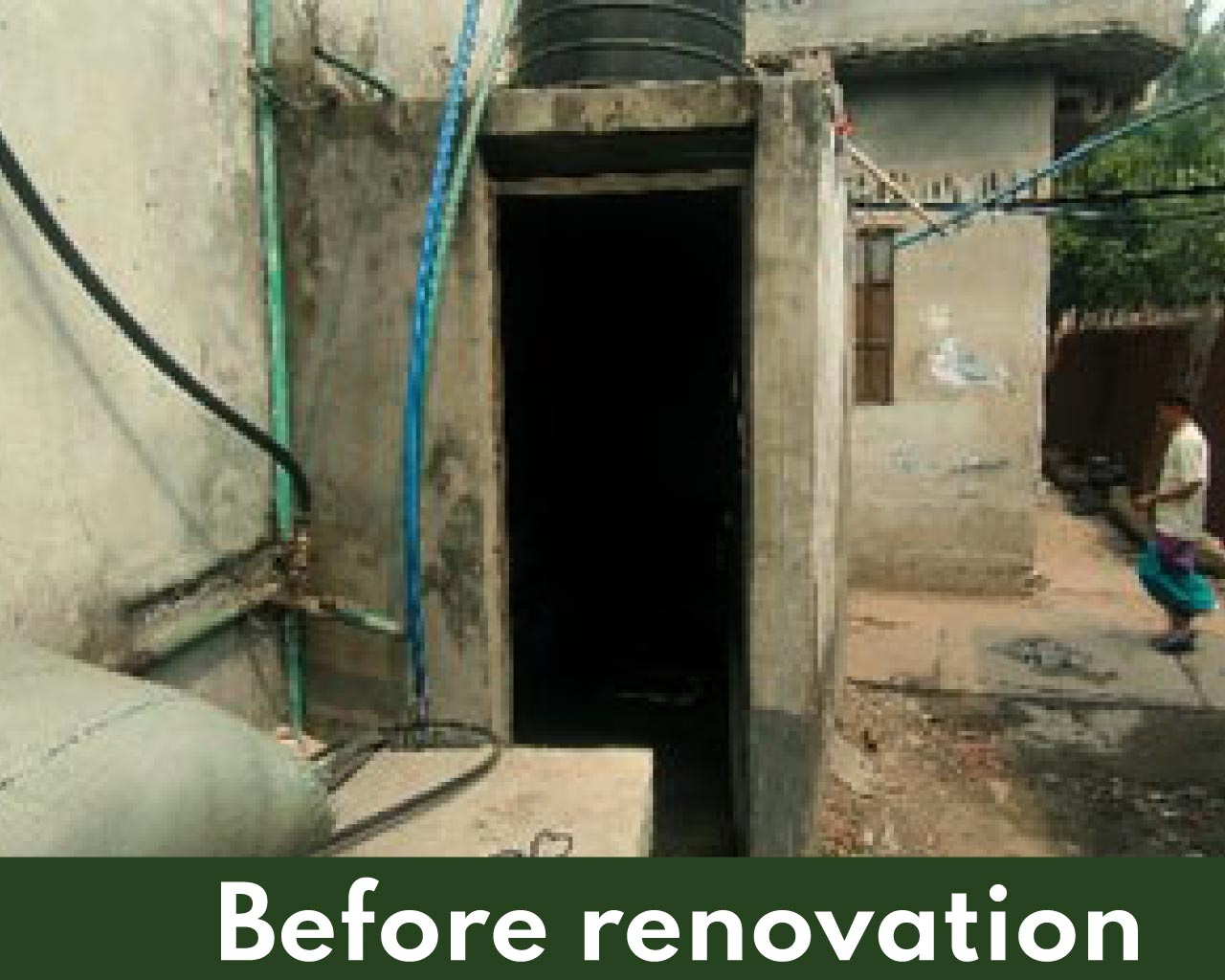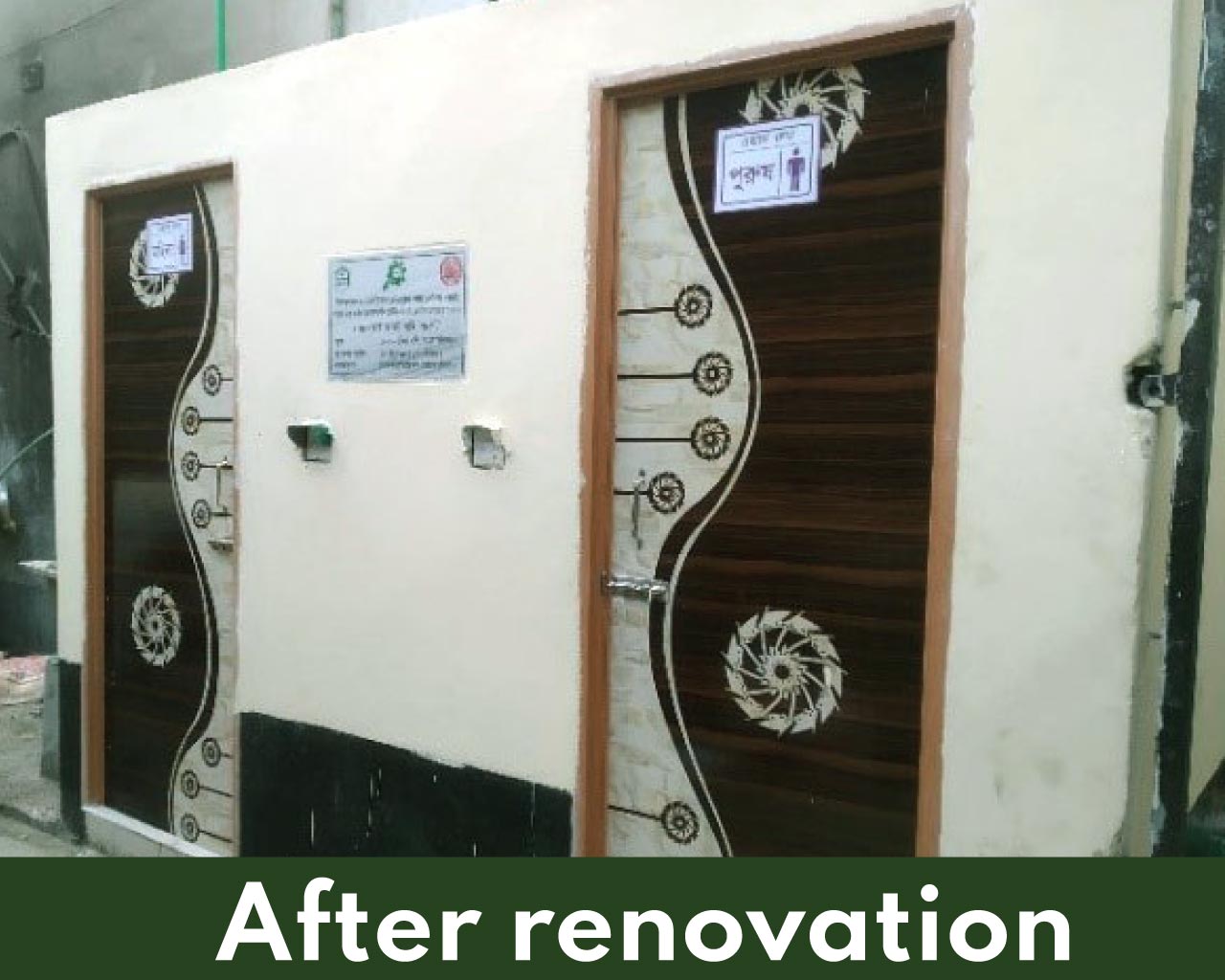DRR and climate change
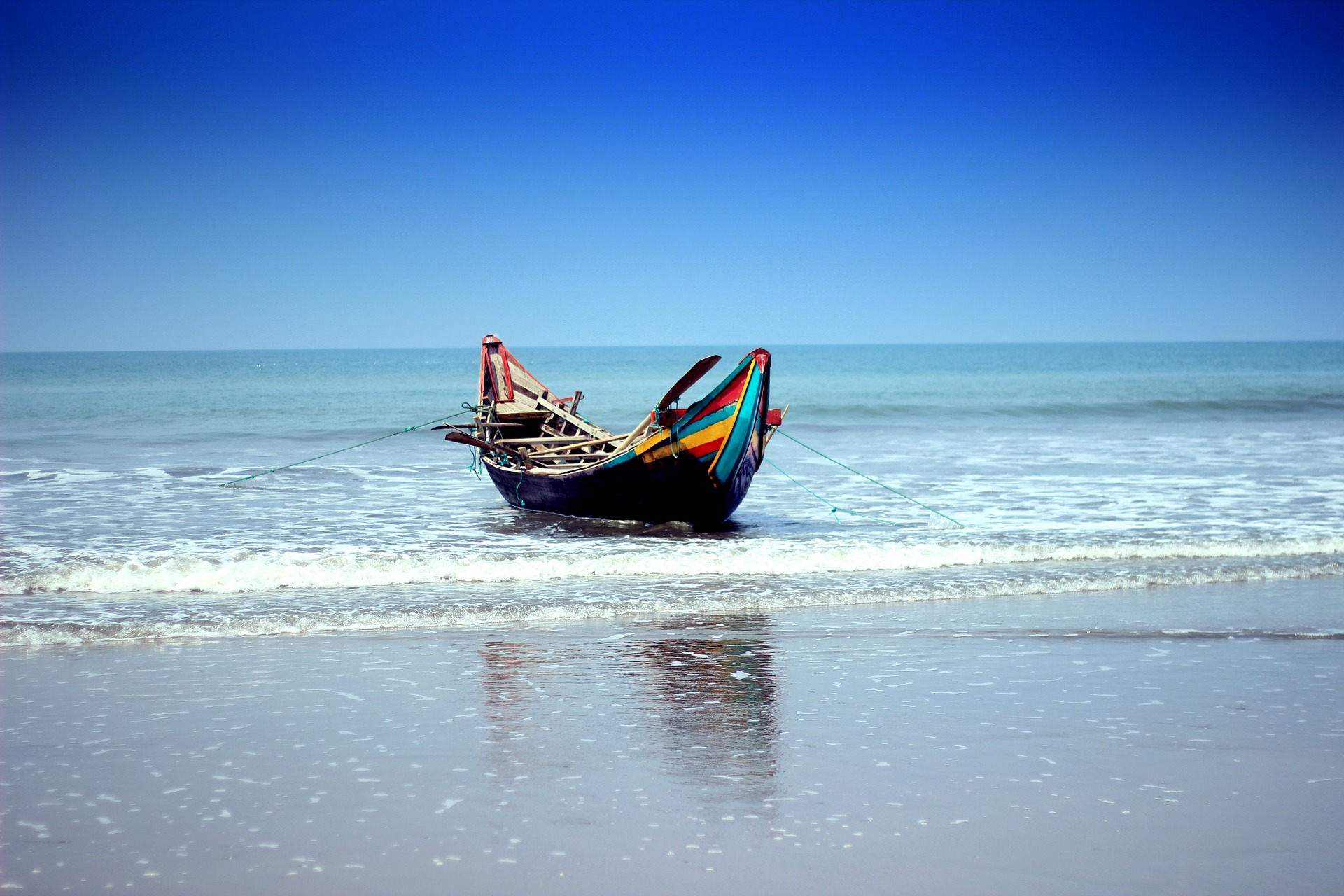
A National Action Plan composed by the government on climate change mitigation. The implementation strategy refers more involvement of stakeholders’ groups, including private sectors and other agencies than that of only government wings to address the growing negative impacts of climate change and prioritized promotion of sustainable forest management practices, afforestation and reforestation; promotion of sustainable agriculture etc. NGOs are also serving to address the climate change issue following SDG goals and giving relentless efforts.
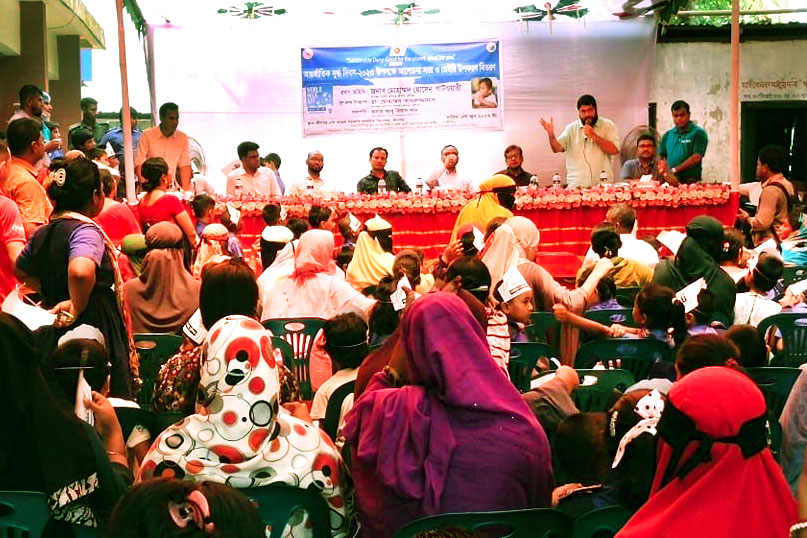 Sustainable Enterprise Project (SEP): Sustainable Enterprise Project (SEP) project is jointly financed by Palli Karma-Sahayak Foundation (PKSF) and World Bank. The objective of the project is to increase the adoption of environmentally sustainable practices by targeted microenterprises. The project prioritizes a selected number of polluting microenterprise business clusters and supports the expansion of innovative economic activities conducive to a more sustainable environment.
Sustainable Enterprise Project (SEP): Sustainable Enterprise Project (SEP) project is jointly financed by Palli Karma-Sahayak Foundation (PKSF) and World Bank. The objective of the project is to increase the adoption of environmentally sustainable practices by targeted microenterprises. The project prioritizes a selected number of polluting microenterprise business clusters and supports the expansion of innovative economic activities conducive to a more sustainable environment.
I) Promotion of Safe Dairy Products through Good Practices: is a sub-project of SEP for the Manufacturing (Food Processing) sector of sustainable and safe dairy products to improve the overall manufacturing and environment of the microenterprises. Resource Integration Centre (RIC) is implementing the project in 5 Upzila (Louhojong, Munshiganj Sadar, SerajdiKhan, Sreenagar and Tongibari) under Munshiganj districts since June 2021 targetting 700 dairy producers.
Objective of the project are the promotion of production of environmentally friendly milk and dairy products and to create brand image to enter the developed premium market, strengthen marginal livestock entrepreneurs for adopting environmentally friendly modern technologies and modern technology in dairy products processing and improving income of the participating MES.
-
Installation of Bio Gas-Plant from the dairy waste-03
-
Demonstration of modern and environment friendly hygienic dairy product processor-07
-
Demonstration of modern dairy brand shop-07
-
Establishment of Village milk collection center (VMCC) with QC facilities -02
-
Establishment of Raw milk testing facilities-20
-
Advocay meeting with the concern authorities for for obtaining Envermental cerftifcate – 03
-
Formation of Environtal club-06
-
Organize Training, orientation session, meeting workshop with different stakeholders for promoting environment friendly dairy products -58
-
Developed we-site for e-marketing of the dairy products
-
Participation in the Dairy Product Fair on Food Safety Day organized by DLS
-
Organize Vaccination & deworming campaign at cluster level-07
-
Organize learning visit for adopting good practices-03
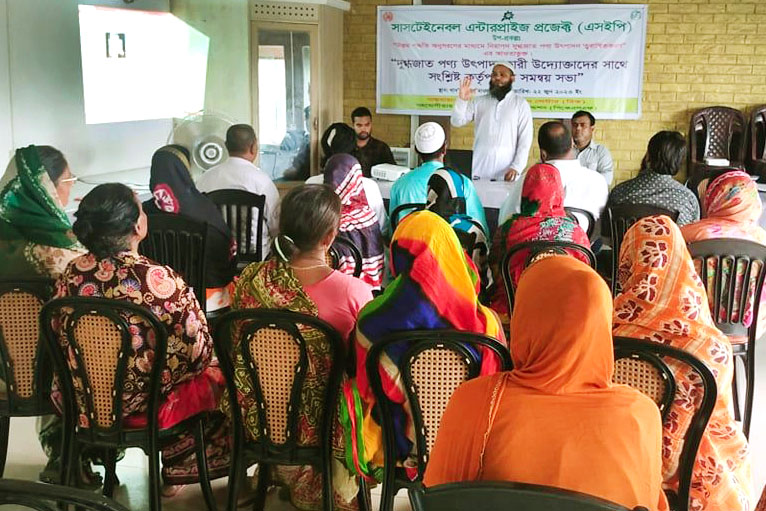
Training on Safe Dairy Product Production
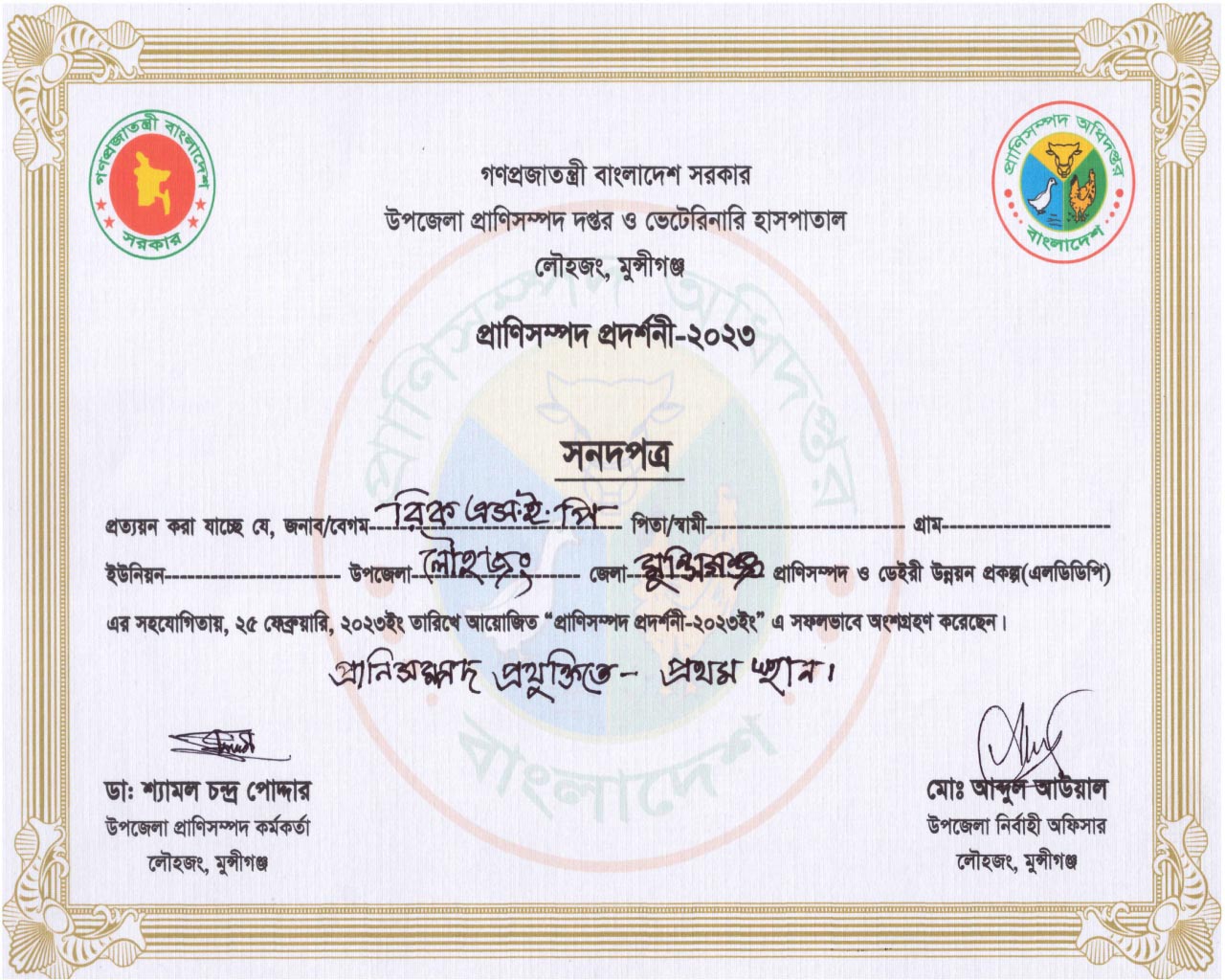 Significant Achievement:
Significant Achievement:
Department of Livestock (DLS) arranged a day long Dairy & Dairy product Exhibition Fair 2023 at Upzilla livestock office of Sreenagar & Louhojong, Munshigonj District. UNO was the Chief guest in both Exhibition Fair, after visiting the stall all invited guests were very pleased & awarded 1st Prize to RIC.
II) Support for creating Economically, Socially and Environment friendly small and medium plastic recycling industries:
The Sustainable Enterprise Project (SEP) Plastic Waste Recycling Project has been implemented at Lalbagh, Kamrangirchar and Shyampur upazilas with the technical support of PKSF and funded by the World Bank since July 2021. This project supports the creation of economically, socially, and environment friendly small and medium plastic recycling industries. Moreover, SEP provides various financial and technical assistance to the business clusters engaged in the agriculture and manufacturing sectors.
The key objectives are to develop plastic recycling product quality of existing items as well as other daily need products along with the sustainable construction materials and inspire plastic recycling micro enterprise on environment friendly production process and its implementation as well as ensure safe and risk-free working environment and to contribute in market linkage of plastic recycle product and environmental development of the factories. Facilitate access from the national to international markets of plastic recycling products by providing support in eco-labeling and product certification.
- Non revenue generating physical Activities (Plastic Waste Sorting and Collection System Development; Purchasing, Distributing, and Maintaining a Customized Van; Model Plastic ME Development; Toilet Renovation for Factory and Community People
- To Increase eco-labeling and Access to Premium markets, a total of nine meetings, trainings, and workshops organized
- Support provided for environmental certification, increasedproduct quality, bargaining power, and knowledge sharing; 12 events supported for the purpose
- 19 events for Capacity Development of the MEs (Training, Market Linkage workshop, New and Innovative product production and promotion) were organized
Significant Achievement :
The most remarkable achievement of the project is the production of 3R (Reduce, Reuse and Recycle) plastic tiles. One of the MEs named Najir Hossain (16104) of Kamrangirchar produced these tiles. According to the proposal of the SEP-Plastic Waste Recycling Sub-project, first the recycling products and market of this sector is analyzed for tile production, and then the final design is finally developed on a dice CNC machine. After that, the production of the tiles started for the first time in Bangladesh.
The tiles are being recommended for use on the pavement of the roadside, in the car parking garage, and on the rooftops of the building. In the meantime, the SEP-Plastic Waste Recycling sub-project team has communicated with the House and Building Research Institute (HBRI) and the North and South Dhaka City Corporation to promote the tiles.
The newly invented tiles will play a significant role in terms of zero plastic waste management. As a result, once-used plastic waste will be stored for more than 25 years, saving the environment from plastic waste pollution. High Officials of the World Bank, Bangladesh and PKSF have visited the tile production process and expressed their full satisfaction.
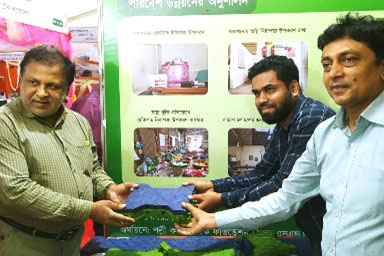
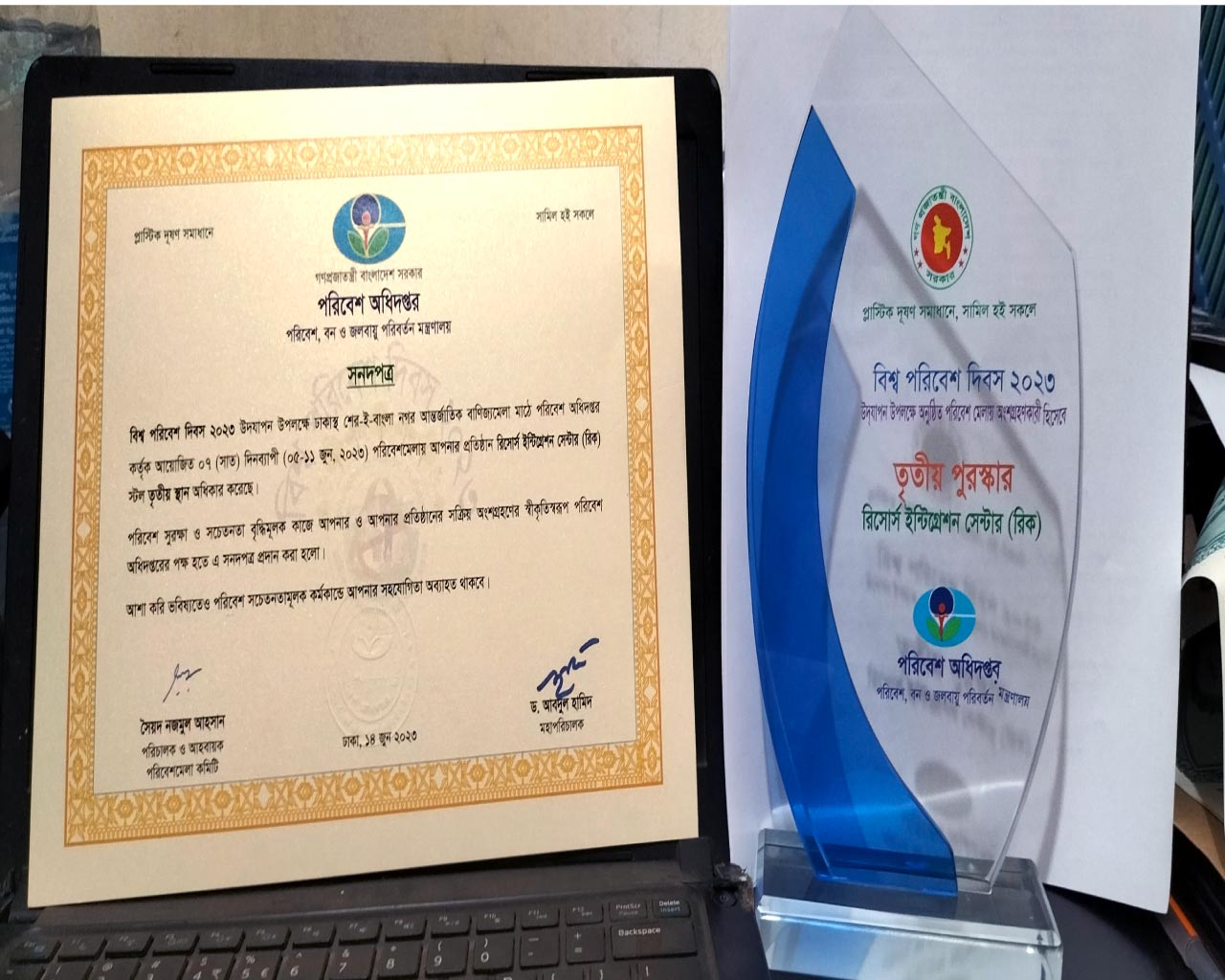
Hygienic Community toilet satisfied women workers:
Kamrangirchor, Islambagh, and Lalbagh areas are considered plastic waste recycling hubs. According to local traders, owners, and workers, there are thousands of plastic recycling factories. In the factories, occupational health and safety conditions are very alarming.
Most of the factories do not have toilets, and even those that do have them are not usable. And separate toilets for men and women are beyond imagination. In these circumstances, the SEP-Plastic Waste Recycling sub-project team searches for sanitary toilets for both men and women.
There is a granules production cluster in Iman Ali’s Lane in Kamrangirchar where about 150–170 workers are working in 10–12 factories, including rickshaw pullers, passersby, floating businessmen, and community members. But the number of toilets is only one. The toilet was used by both men and women, which was not safe for women workers. This toilet in the granule production area has been chosen for reconstruction for both males and females separately. Two toilets were needed according to the volume of the population. SEP-Plastic Waste Recycling, implemented by RIC, decided to start reconstruction of the toilet. In the meantime, the renovation task has been completed, and after the renovation, both male and female workers are using this toilet separately.
They feel safe and comfortable in this environment, especially the women workers. This toilet is used by the above-mentioned people with more satisfaction than before. In the reconstruction activities, the microentrepreneurs also participated.
